The election of a new Congress president once again vindicates the fact that the more things change in the grand old party, the more they remain the same.
The just concluded electoral exercise was aimed at finding the successor of Sonia Gandhi, who had been the party president since 1998 with a brief, friendly interregnum in favour of her son, Rahul Gandhi, between 2017 and 2019.
The nature of the presidential contest can be understood from the fact that it was about who among the two — Mallikarjun Kharge or Shashi Tharoor — was more loyal to the Gandhi-Nehru-Vadra family.
They both openly vied for Sonia Gandhi’s blessings. They profusely praised Rahul Gandhi’s leadership qualities. Where Kharge scored over Tharoor was when he said unabashedly that he would have no shame in taking the advice and support of the Gandhis in running the party affairs, if he became its chief.
Tharoor, instead, made the mistake of sharing the agenda in case he became the president. A thinking president is the last thing the Gandhis would want, especially when they have to survive despite scoring one electoral dud after another!
Being an octogenarian and someone who has worked closely under the Gandhis, Kharge knows the Congress DNA well. He would have been too young when Purushottam Das Tandon who, with Sardar Vallabhbhai Patel’s blessings, took over the reins of the Congress in 1950 after defeating Jawaharlal Nehru-supported Acharya JB Kripalani.
Internal conflicts with Nehru, especially after the demise of Patel, eventually pushed Tandon to resign from his post on the eve of the 1952 Lok Sabha elections, with the then Prime Minister also taking the charge of the party for the next two years.
Nehru conveniently forgot the one-man, one-post philosophy which he otherwise endorsed; he could remember this mantra only when there was no politico-ideological challenge left within the party. (Of course, in the late 1930s too, one witnessed a duly elected party president being forced to resign, but the Congress in those days was not a one-family party.)
Kharge would, however, remember the fate of Sitaram Kesri — who was the last non-Gandhi Congress chief before Kharge won the presidential contest on Tuesday — after he went against the interest of the Gandhi family.
Rasheed Kidwai writes in his latest book, Leaders, Politicians, Citizens, “On 14 March 1998, the Congress’ 24 Akbar Road headquarters was a mute witness to a coup that ensured the rather unsavoury exit of an ‘elected’ Congress president and the appointment of Sonia Gandhi as party chief.”
The veteran Dalit leader was forced to resign as party chief, was heckled and some Youth Congress workers even tried to pull off his dhoti. “By the time Kesri exited 24 Akbar Road, the nameplate outside what used to be his room had already been replaced with a computer printout that read: ‘Congress President Sonia Gandhi’,” Kidwai adds.
The Gandhis, though badly bruised and battered after a series of electoral reverses since 2014, are still adept at “managing” the party well.
Partly, in their defence, it can be said that without the family glue, the centrifugal forces invariably set themselves into motion within the Congress. This was the case in the late 1990s when Sonia Gandhi stepped in. And, to her credit, she relied on the old guard, led by the likes of Ahmed Patel, to get the party back into power in 2004.
Today, the situation is different. Rahul’s distrust for the old guard, whatever little is left of them in the party, has gone beyond the stage of rapprochement. And, worse, the young leaders he put his bet on are too aloof and distant from India’s ground realities — and those few with some sort of mass appeal have either left the Congress, as is the case with Jyotiraditya Scindia, or are sulking Sachin Pilot-like within the party.
The Congress presidential election is a testimony to the failure of Rahul’s “youth politics”. In 2012, Jatin Gandhi and Veenu Sandhu, in their book Rahul, talked eloquently about the Youth Congress scoring “an active membership base” of one crore — “a big number even with a population more than a hundred times that number”. There were tall claims about youth being made the centre-piece of Congress politics.
A decade later, all that the party could get for its presidential post was an 80-year-old Kharge, while others in the running, apart from relatively younger Tharoor (66), were 71-year-old Ashok Gehlot and 75-year-old Digvijaya Singh.
Looked closely, Rahul and his team seem to be aping the Rajiv Gandhi formula of the 1980s, when the Congress talked about youth, computers, 21st century, et al. Like Rahul, he too had involved his school friends and the sons of other dynasts he grew up with. Rajiv Gandhi showed “a weakness for the English-speaking, Doon School-educated Indians with whom he had grown up”, as Tavleen Singh writes in his much-readable Durbar (2012).
“Unfortunately, like him, they were apolitical and unfamiliar with the complexities of ruling a country as diverse and difficult as India so none of them could help bring the changes that the country so desperately needed,” she explains.
Singh adds, “Even in his choice of bureaucrats Rajiv was inclined towards Doon School types like Mani Shankar Aiyar, who was given charge of his relations with the media. But he was a bumptious ex-Marxist with an offensive manner that did little to endear either him, or the new prime minister, to journalists and Rajiv paid a heavy price for this later when his troubles began.”
It worked initially for Rajiv Gandhi as the India of the 1980s was different from the India of the 2010s and 2020s. It also worked because the Congress of the ’80s was a well-oiled electoral machine. But the fact that Rajiv could squander within three years the majestic majority that the Congress got in 1984, speaks volumes of the mistakes he made.
Corruption, especially near the power centre, jumped multi-fold. Tavleen Singh writes how there was suddenly “a lot of money” among Rajiv’s and Sonia’s friends. “No longer did they travel economy when they went abroad and no longer did they stay with friends in London and New York. They stayed in expensive hotels and this was so new and wondrous experience for them that they liked slipping names like Claridges and the Meurice into accounts of their travels. I remember on a trip to Washington being astounded to discover that one of Rajiv’s poorest friends spent a month occupying two suites in the Watergate hotel. Friends of Rajiv who had lived on salaries that barely enabled them to afford a small Indian car now drove around in foreign cars and in their drawing rooms suddenly appeared expensive works of art and antiques. Nobody asked too many questions because Rajiv was still very popular but rumours of ‘deals’ started to filter into newspaper offices,” she writes in Durbar.
SS Gill, author of The Dynasty, too, hinted at this in his book when he said that the tragedy of Rajiv Gandhi was not that he failed to redeem his promises but that he ended up aligning with the same forces that he had vowed to fight against.
Rahul, too, seems to be treading the same disastrous path. What’s worse for him is that he doesn’t have the party organisation that his father inherited.
So, Rahul finds it difficult to electorally make a deep cut into Indian politics. He remains an upstart, even after being in politics for almost two decades. His Bharat Jodo Yatra is a classic example of his rootlessness and failure to learn from his mistakes and those of his father’s.
To Rahul’s credit, he has never looked so involved and energetic in recent times; he seems to be connecting well with the masses and has committed far fewer faux passes.
But the Yatra still, at its core, remains a Western style, corporate agency-managed event. There’s nothing wrong in the corporatisation of a political party event; most parties, including the BJP, do it, but only those succeed that give it a proper desi flavour.
Sprinting… pushups… may work well in the West but in India they aren’t the things that the masses really connect with. They may get intrigued for some time, but to see that as support will be unwise. Without any credible party machinery, it just remains a media spectacle.
If Rahul is getting some traction in Karnataka, he should not mislead himself into believing in his own hype: It’s because the state Congress unit is still in a decent shape in Karnataka, and the ruling state BJP dispensation is scoring one self-goal after another.
Kharge’s election, far from bringing out the vibrancy in the Congress, points at deep-rooted malaise afflicting the party. It’s caught in a Catch-22 scenario: It has been so genetically modified in the past 50 years that it can’t survive without the Gandhi family.
But, then, such is the level of ineptitude and lack of imagination among the current generation of the Gandhis that they just can’t let the party grow either. Either way it seems to be the endgame for the Congress. But then who knows? Politics has always been a game of possibilities.
The author is Opinion Editor, Firstpost and News18. He tweets from @Utpal_Kumar1. Views expressed are personal
Read all the Latest News , Trending News , Cricket News , Bollywood News , India News and Entertainment News here. Follow us on Facebook , Twitter and Instagram .


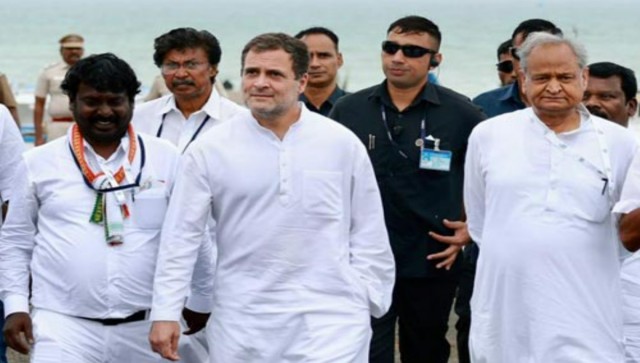)




)
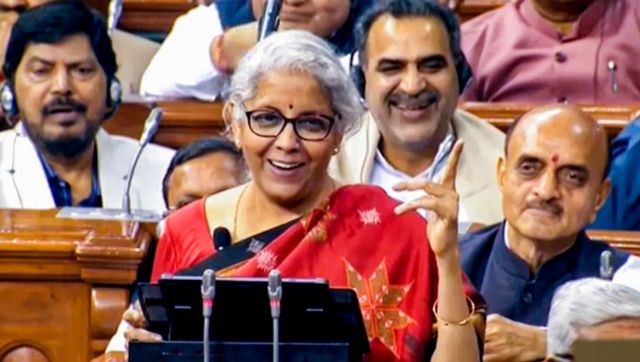)
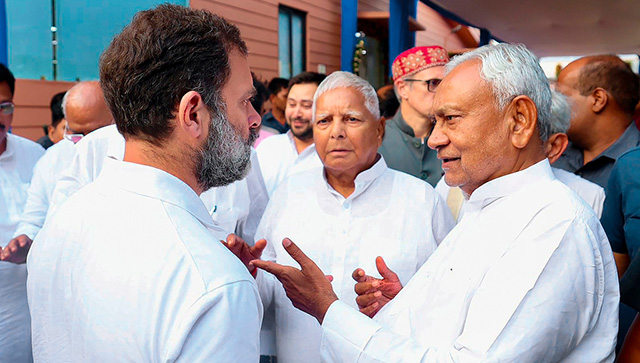)
)
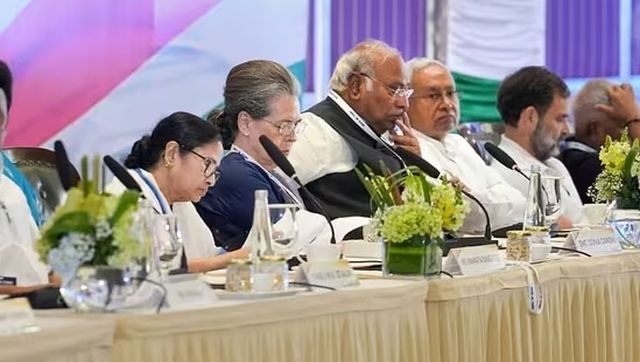)
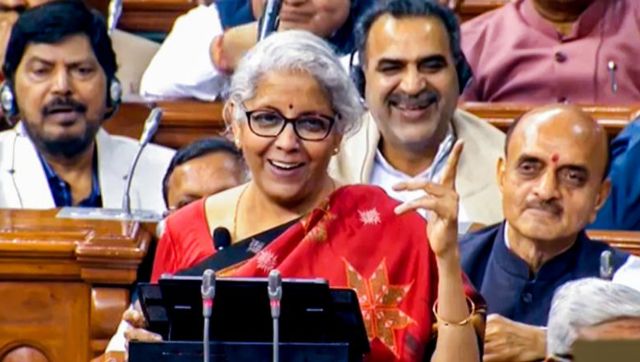)
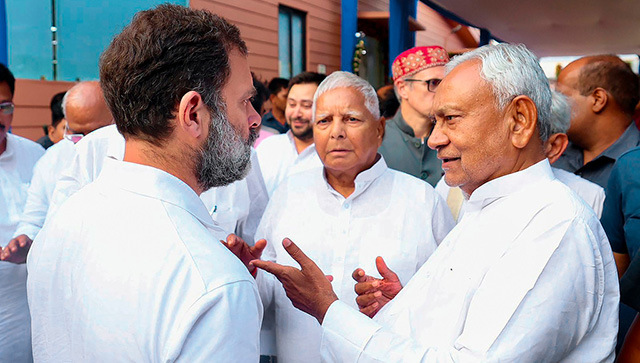)
)